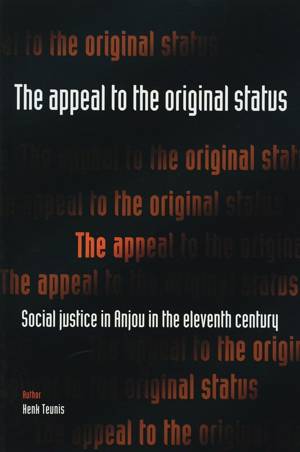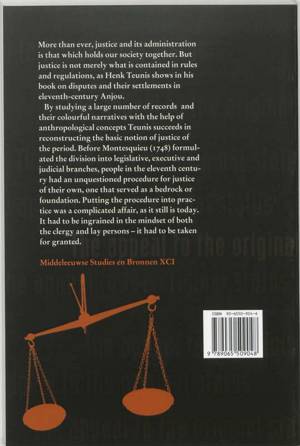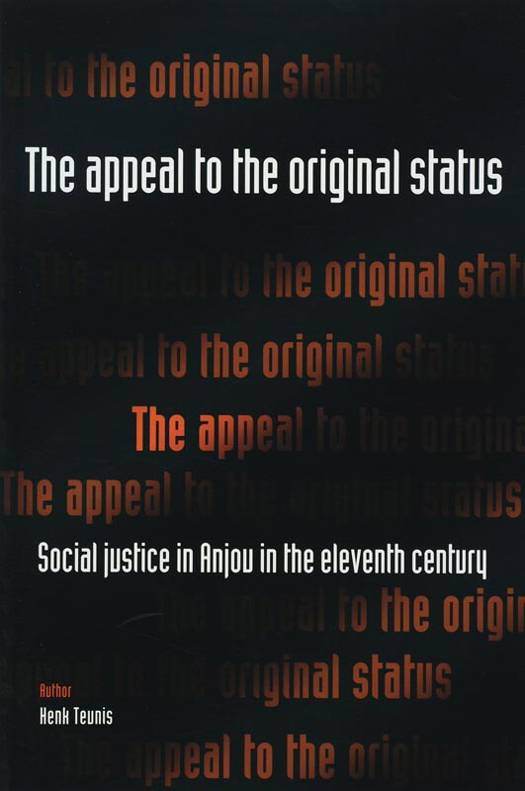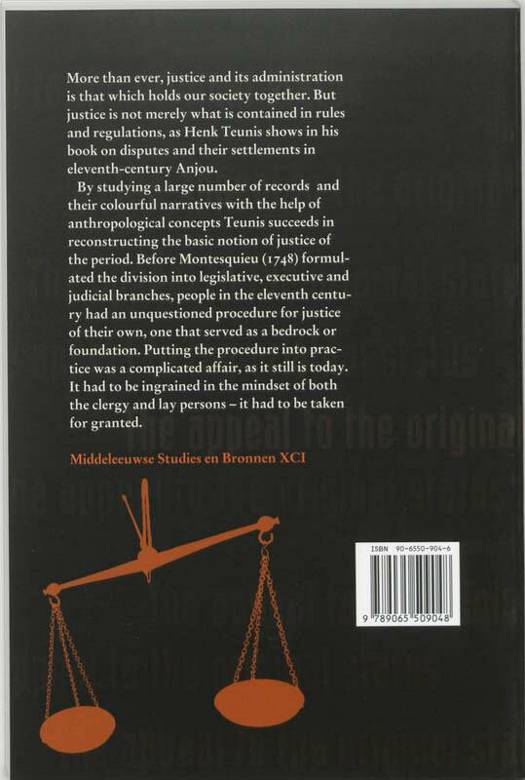
- Afhalen na 1 uur in een winkel met voorraad
- Gratis thuislevering in België vanaf € 30
- Ruim aanbod met 7 miljoen producten
- Afhalen na 1 uur in een winkel met voorraad
- Gratis thuislevering in België vanaf € 30
- Ruim aanbod met 7 miljoen producten
Zoeken


€ 29,00
+ 58 punten
Omschrijving
More than ever, justice and its administration is that which holds our society together. But justice is not merely what is contained in rules and regulations, as Henk Teunis shows in his book on disputes and their settlements in eleventh-century Anjou.
By studying a large number of records and their colourful narratives with the help of anthropological concepts Teunis succeeds in reconstructing the basic notion of justice of the period. Before Montesquieu (1748) formulated the division into legislative, executive and judicial branches, people in the eleventh century had an unquestioned procedure for justice of their own, one that served as a bedrock or foundation. Putting the procedure into practice was a complicated affair, as it still is today. It had to be ingrained in the mindset of both the clergy and lay persons - it had to be taken for granted.
Middeleeuwse Studies en Bronnen XCI
By studying a large number of records and their colourful narratives with the help of anthropological concepts Teunis succeeds in reconstructing the basic notion of justice of the period. Before Montesquieu (1748) formulated the division into legislative, executive and judicial branches, people in the eleventh century had an unquestioned procedure for justice of their own, one that served as a bedrock or foundation. Putting the procedure into practice was a complicated affair, as it still is today. It had to be ingrained in the mindset of both the clergy and lay persons - it had to be taken for granted.
Middeleeuwse Studies en Bronnen XCI
Specificaties
Betrokkenen
- Auteur(s):
- Uitgeverij:
Inhoud
- Aantal bladzijden:
- 155
- Taal:
- Engels
- Reeks:
- Reeksnummer:
- nr. 91
Eigenschappen
- Productcode (EAN):
- 9789065509048
- Verschijningsdatum:
- 8/04/2006
- Uitvoering:
- Paperback

Alleen bij Standaard Boekhandel
+ 58 punten op je klantenkaart van Standaard Boekhandel
Beoordelingen
We publiceren alleen reviews die voldoen aan de voorwaarden voor reviews. Bekijk onze voorwaarden voor reviews.








